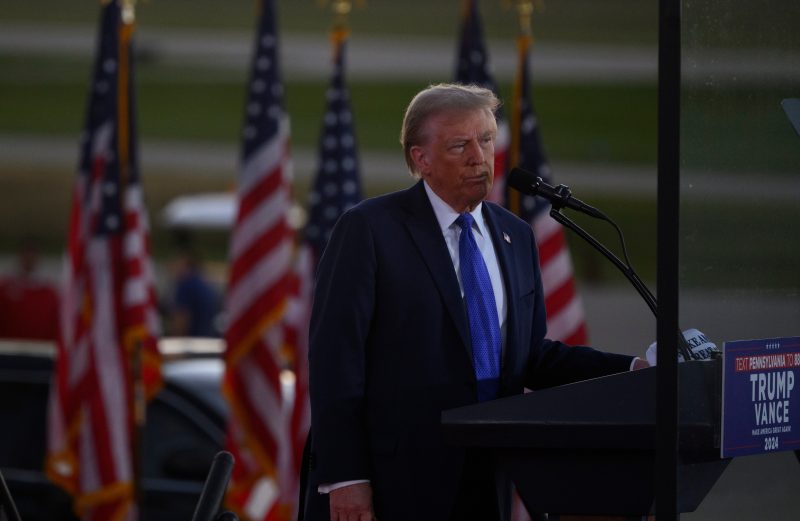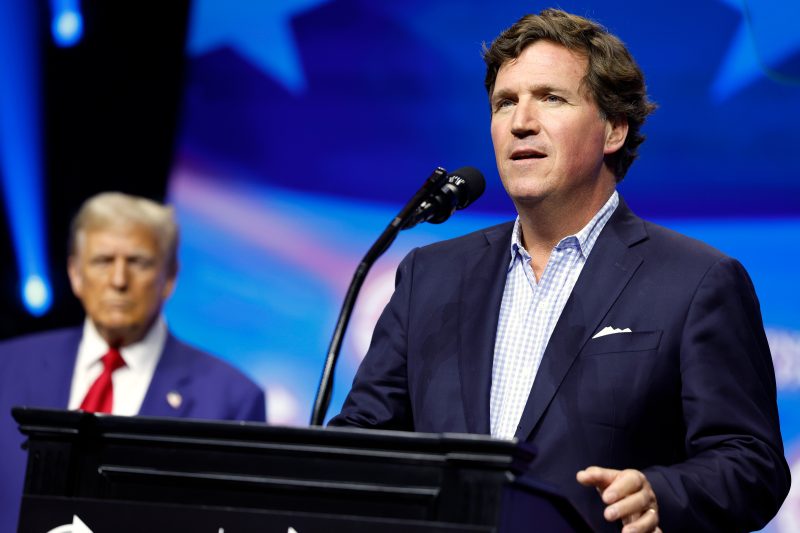
Democrats long focused on beating Trump. Now they’re divided on what to do.
The Monday after President Biden’s dismal debate, Rep. James E. Clyburn (D-S.C.) — who helped deliver the Democratic nomination to Biden four years ago — declared on MSNBC that he was “sticking with” the president in the wake of his fumbling debate performance.
On Tuesday, Clyburn told the same network that he would “support” Vice President Harris if Biden “were to step aside.”
And on Wednesday, Clyburn told CNN that he would endorse “a mini-primary heading into the convention” — remarks an aide quickly clarified, saying that Clyburn was simply explaining how the existing process would work if Biden decided to drop out.
Clyburn’s spectrum of comments underscores the challenge facing Democrats less than two months from their convention and four months from Election Day: For almost a decade, the galvanizing force and unifying mission of the Democratic Party has been to beat Donald Trump, but now there is real disagreement over who is best equipped to do that.
“Totally candidly, that is what makes this very hard — we don’t have crystal balls,” said Navin Nayak, president of the Center for American Progress Action Fund, a liberal advocacy organization. “There is a very, very good case to make against Donald Trump — he is a historically weak candidate — and we’ve got to figure out who is the best person to prosecute the case.”
For a party that in recent years has often defined itself by who it is against rather than what it is for, Biden’s age and health-related vulnerabilities have suddenly thrust their carefully crafted strategy of turning the election into a referendum on the former president into doubt.
Now, the same Democrats who quickly coalesced around Biden after the South Carolina primary in 2020 because they thought he had the best shot of defeating Trump find themselves fractured — not over ideology or personality, but over how to deny Trump a return to the White House and whether the leader they bet on is still the right messenger.
“There is a very thoughtful discussion going on among the Democratic Party about the best way forward, but this isn’t where we expected to be, so you should expect us to take some time to figure it out,” said Rep. Seth Moulton (D-Mass.), who last week called on Biden to step aside. “We want to make sure we can unify quickly behind a new candidate and ensure that new candidate is our best shot at beating Donald Trump.”
The party currently finds itself gaming out what many Democrats view as three subpar options: To prop up Biden at the top of the ticket, and hope that he doesn’t have another faltering appearance in public; to publicly push Biden to step aside and all coalesce around Harris as the new nominee; or to attempt to bypass Harris — a historic Black and Indian American female vice president — in favor of a different Democrat still untested on the national stage.
Rep. Brad Sherman (D-Calif.) said he still supports Biden — but only if he can pass Sherman’s test of “an extended live interview, whether its 60 minutes, 90 minutes, 75 minutes.”
“Look, no one can guarantee they can beat Trump, and many, many people might well beat Trump,” Sherman said. “And you don’t take this nomination away from Biden because 17 pollsters do 17 focus groups and tell you that Candidate X has a 3.2 percent higher probability of beating Trump than Biden.”
Though a growing number of elected officials privately think that Biden should stand down to give his party the clearest path to defeating Trump, no clear consensus has emerged on how to shunt Biden off the ticket. A small but growing number of Democratic House members have publicly called for Biden to step aside — a tally expected to mushroom when Congress returns to Washington this week — and Sen. Mark R. Warner (D-Va.) is working to gather a group of Democratic senators to ask Biden to leave the race.
In an interview with ABC News’s George Stephanopoulos Friday night, Biden dismissed Warner’s concerns and pushed back on the suggestion that a group of Democratic leaders — people like Clyburn, House Minority Leader Hakeem Jeffries (N.Y.), former House speaker Nancy Pelosi (Calif.) and Senate Majority Leader Charles E. Schumer (N.Y.) — might come to him and say that they were going to lose both the House and Senate if he remains on the ticket.
“I’ve spoken to all of them in detail, including James E. Clyburn, every one of them,” Biden told Stephanopoulos. “They all said I should stay in the race … None of the people said I should leave.”
In fact, the consensus among Democratic senators is that Biden needs to step down, according to two Democratic senators, who spoke on the condition of anonymity to candidly share a sensitive opinion. And more and more House Democrats, too, privately became convinced in the week after the debate that Biden would need to bow out for the sake of ensuring the party has a chance to defeat Trump.
But for a party whose animating cry for so long has been opposition to Trump rather than support or loyalty for a particular leader or set of policies, the uncertainty has forced Democrats to grapple with an identity crisis as they suddenly must decide anew on the most capable candidate to defeat Trump.
For many Democrats, Biden’s biggest sin in his ABC News interview was saying he would feel fine in January if Trump were returned to office, as long as “I gave it my all and I did the goodest job as I know I can do” — a remark that raised hackles among Democrats who said beating Trump is the most important goal.
Abigail Disney, a filmmaker, activist and Disney heir who is withholding donations to Democrats until Biden drops out, wrote in response to emailed questions that “the more he gives answers like this the more convinced I am that this is a question of his ego more than the good of the country.”
“That answer is only satisfactory if the struggle in question is for the Pee-wee soccer title in your neighborhood,” she added.
Several Democratic lawmakers and aides last week argued that their lines of attacks against Trump and the MAGA movement will not change — that Trump has become more self-obsessed, dangerous and extreme since his 2020 loss — but that they need a strong messenger at the top of the ticket to lay out the party’s agenda.
“It’s the messenger, not the message,” a House Democratic aide said. “A campaign is a referendum on your opponent, not yourself.”
Many Democrats argue there is no choice but Harris to succeed Biden as the Democratic candidate, pointing to her unique ability to inherit the Biden-Harris campaign operation, including the money Biden has raised.
Some argue that Harris has grown into her role as Biden’s No. 2 after a rocky start, and others who have serious doubts about Harris as a candidate nonetheless worry that passing over a woman of color in favor of someone else would alienate key swaths of the Democratic base, including Black women, who will be key to any victory in November.
In a call Wednesday evening, House Democratic leaders spoke about who could replace Biden, according to one participant. “There was no real consensus, but there was general awareness that it would be difficult for it to be anyone but Harris,” the lawmaker said.
Another Democratic lawmaker said Harris would improve support among Black voters and would help with the party’s issues on the Israel-Gaza war. But this lawmaker also said that Harris would likely hurt the ticket on union and blue-collar issues. She has room to grow, this lawmaker said, but noted that Harris — who dropped out of the 2020 Democratic primary before the first contest — is untested as a leading national candidate.
Moulton said he has not decided which post-Biden option he prefers, but the person will need to have a Biden-like ability to appeal to a broad range of voters.
“I want someone who can unite not just the party but the country, who can bring together Republicans alienated from their own party with the wide diverse coalition of Democrats,” he said. “This is not just about the presidential race. This is about the whole Democratic Party up and down the ticket and what we can offer America, as opposed to a dysfunctional party that’s going through a civil war led by a criminal.”
Dmitri Mehlhorn — a donor adviser to LinkedIn founder Reid Hoffman, who is working with outside groups to elect Biden — said he still thinks Biden is the best choice but argued that Harris is the only plausible option if Biden drops out.
“Kamala is a prosecutor and she can take the case to a criminal,” said Mehlhorn, referring to Harris’s past as an attorney general and prosecutor in California. “The anti-Trump coalition is a winning coalition. There is no coalition in America that can beat Tump that is not an anti- Trump coalition.”
Last week, at least two separate memos making the case for Harris began circulating among Democratic donors and allies, including one arguing for “a surround-sound support campaign to boost VP Harris’s role on the ticket.”
“We must make voters realize this is an election between two different futures, and they must view MAGA rule for the real danger it poses to their lives,” read one memo written by the co-founders of Way to Win, a women of color-led coalition of liberal donors.
Other Democrats, however, say some sort of mini-primary is the better option, allowing the strongest possible candidate to emerge. Several added that Harris could very well emerge the top choice out of such a process, but undergoing an actual contest would make her a more formidable nominee and avoid the appearance of a coronation.
Bill Harris, a former chief executive of PayPal and Intuit, is leading a group of Democratic donors who have pledged $2 million to fund a series of debates between potential nominees if Biden drops out.
Harris dismissed the concerns about “the chaos” and “the rancor” that a primary process might cause, arguing that the bigger threat would be quickly replacing Biden without any debates.
“We desperately need some drama,” he said, adding that watching Biden’s Friday night ABC News interview only strengthened his resolve.
William Kristol, founder of the conservative Weekly Standard and a strong Trump critic working to prevent him from returning to the White House, similarly said that if Biden steps aside, Democrats could use the opportunity of a curtailed primary to generate excitement and buzz “once people get over the shock.”
“Let’s have speeches Monday night at the convention — five-minute speeches from all of these candidates — and you’d have 60 million people watching,” Kristol said. “I’m very much of the view that you’ve got to turn lemons into lemonade. The Democrats can be the party of generational change and the new faces of excitement — not about gritting your teeth and trying to hold on.”
Sarah Longwell, an anti-Trump Republican strategist who runs weekly focus groups with voters, hosted four such groups with swing voters after the debate and said every single voter was “really alarmed by what they saw” and “everybody wanted him to step down.”
In one group — where the nine participants had voted for Hillary Clinton in 2016 and Biden in 2020 — six said they would still vote for Biden, while the remaining three said they would write in a candidate or leave the presidential slot blank.
When asked who they would prefer to replace Biden, none of the voters in this group brought up Kamala D. Harris unprompted, instead mentioning options like California Gov. Gavin Newsom and Michigan Gov. Gretchen Whitmer.
Adding Harris to the top of the ticket, Longwell said, persuaded one more voter — seven in total — to support the Democratic nominee, while putting Newsom or Whitmer at the top of the ticket prompted all nine participants to say they would vote Democratic.
Still, for all the current uncertainty and recriminations, many Democrats remain convinced that once a clear option emerges, the party will coalesce around the nominee because their guiding principle — defeating Trump — remains unchanged.
“When we get past this moment, there will be unity around the Democratic nominee,” said Adam Green, co-founder of the Progressive Change Campaign Committee. “Between the debate and the corrupt Supreme Court giving unchecked powers to the president, even more energy is focused on winning — so that’s a sad but silver lining of the current mess.”
Leigh Ann Caldwell, Josh Dawsey, Marianne LeVine, Theodoric Meyer and Marianna Sotomayor contributed to this report.



